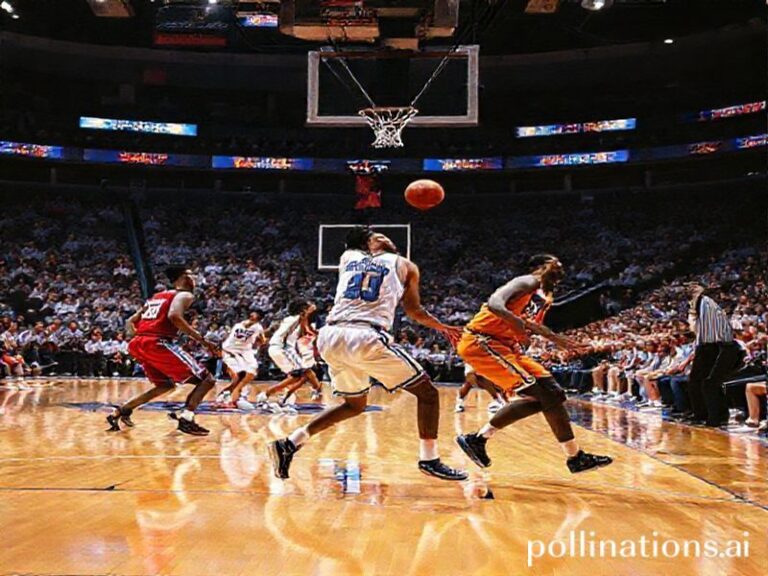Omaze: How the World Learned to Stop Worrying and Love the Luxury Raffle
Omaze: The Golden Ticket Factory Where Dreams Are Packaged in USD, EUR, and Existential Dread
by our correspondent in the Duty-Free Lounge of Disillusionment
Somewhere between the duty-free Bulgari store and Gate 42B at Heathrow, an email pings: “Win a Tuscan villa & a Lamborghini for £10.” The sender is Omaze, the Los Angeles-based sweepstake-cum-conscience that has quietly franchised hope to 200 countries and counting. What began as a Silicon Valley side-hustle—Ryan Cummins and Matt Pohlson auctioning off a dinner with Magic Johnson—has metastasized into a planetary lottery where the house always wins, the charities get a polite 15-17 %, and the rest of us practice advanced numeracy trying to calculate 1 in 1.2 million odds while waiting for a delayed connection to nowhere.
From Manila to Manchester, the pitch is identical: a sun-drenched video, a celebrity cameo (preferably one whose career peaked before the audience was born), and the promise that your negligible donation will both cure pediatric cancer and land you a Tuscan infinity pool. The genius is in the localization: the villa is filmed in 8K, the currency symbol flips like a chameleon in a hedge fund, and the legal disclaimers mutate into 17 languages, each more fatalistic than the last. In Japan, the fine print bows apologetically; in Germany, it cites three federal statutes and a Goethe poem about the futility of desire.
Of course, every nation brings its own cultural seasoning to the delusion. In Brazil, entrants treat the £10 entry as a hedge against inflation because the real is doing interpretive dance. In Nigeria, WhatsApp uncles forward the campaign as proof that “white people still give away houses for fun.” Meanwhile, the French shrug: if you win, you’ll only be taxed into republican equality anyway. And in the United Kingdom—post-Brexit, mid-cost-of-living crisis—Omaze has become the national antidepressant. Why march on Parliament when you could win a Cotswolds manor and a Tesla, all while supporting the Royal Marsden? It’s Nietzsche’s eternal return wrapped in an Ocado tote.
The global implications are deliciously bleak. Omaze has cracked the code of turning inequality into entertainment: the same algorithm that recommends Thai street food videos now auctions off Thai beachfront. Critics call it “philanthro-capitalism”; fans call it “democratizing luxury.” Both are correct, which is precisely the problem. The platform has become a Rorschach test for late capitalism—some see altruism, others see a slot machine wearing a UNICEF T-shirt. Either way, the money flows westward, the villas stay vacant 48 weeks a year, and the carbon footprint is discreetly offset by planting trees on a Zoom background.
Governments watch with the weary envy of a bouncer who knows the fake ID is flawless. The UK Gambling Commission wrings its hands; the IRS circles like a vulture that read the fine print; the EU ponders whether hope itself is a taxable import. Meanwhile, influencers from Dubai to Denmark film unboxing videos of “the moment I found out I won,” a genre that combines lottery hysteria with hostage-video sincerity. The real prize, one suspects, is not the villa but the content.
And yet—here’s the cosmic joke—Omaze may be the most honest transaction in modern charity. Traditional galas sell $500 plates of chicken while billionaires deduct the champagne. Omaze at least lets the plebs in on the grift for the price of a cinema ticket and throws in a 0.000083 % chance at a better life. It’s philanthropy for the gig economy: no dress code, no small talk, just a direct debit and a dream deferred by algorithm.
So as another email lands—“Last chance to enter before midnight GMT”—the planet collectively exhales and clicks. Somewhere a server farm in Nevada registers the transaction, a charity adds another decimal to its annual report, and a marketing intern queues the next drone shot of infinity pools at golden hour. We all know the odds. We enter anyway. Because in a world on fire, even a rigged raffle feels like shade.







